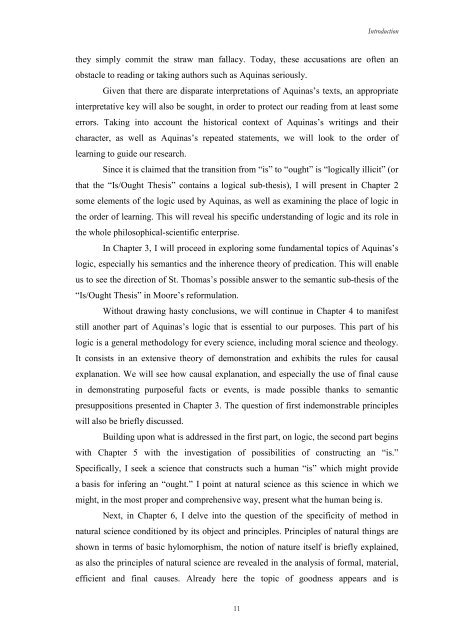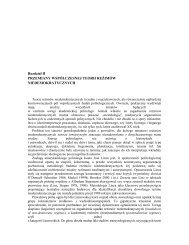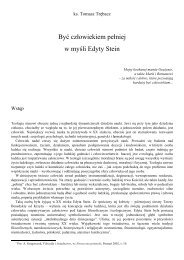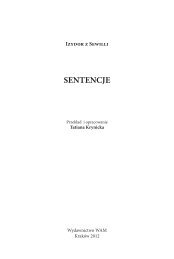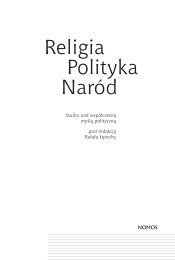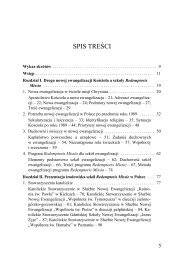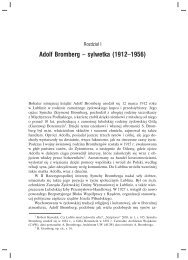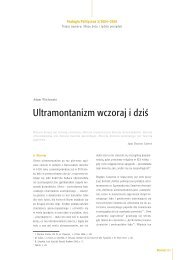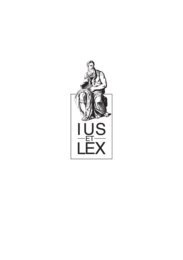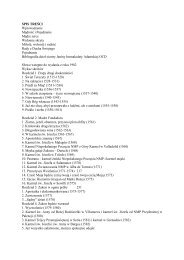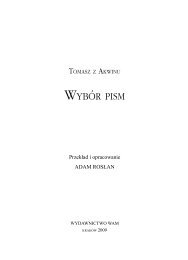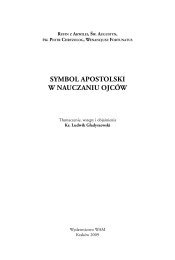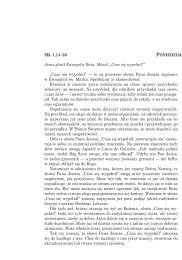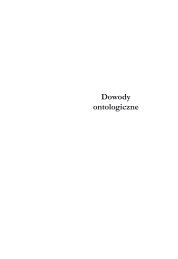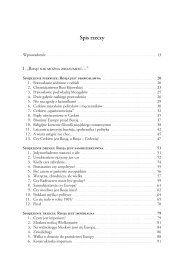Did St. Thomas Aquinas Justify the Transition from 'Is' to 'Ought'
Did St. Thomas Aquinas Justify the Transition from 'Is' to 'Ought'
Did St. Thomas Aquinas Justify the Transition from 'Is' to 'Ought'
You also want an ePaper? Increase the reach of your titles
YUMPU automatically turns print PDFs into web optimized ePapers that Google loves.
11<br />
Introduction<br />
<strong>the</strong>y simply commit <strong>the</strong> straw man fallacy. Today, <strong>the</strong>se accusations are often an<br />
obstacle <strong>to</strong> reading or taking authors such as <strong>Aquinas</strong> seriously.<br />
Given that <strong>the</strong>re are disparate interpretations of <strong>Aquinas</strong>’s texts, an appropriate<br />
interpretative key will also be sought, in order <strong>to</strong> protect our reading <strong>from</strong> at least some<br />
errors. Taking in<strong>to</strong> account <strong>the</strong> his<strong>to</strong>rical context of <strong>Aquinas</strong>’s writings and <strong>the</strong>ir<br />
character, as well as <strong>Aquinas</strong>’s repeated statements, we will look <strong>to</strong> <strong>the</strong> order of<br />
learning <strong>to</strong> guide our research.<br />
Since it is claimed that <strong>the</strong> transition <strong>from</strong> “is” <strong>to</strong> “ought” is “logically illicit” (or<br />
that <strong>the</strong> “Is/Ought Thesis” contains a logical sub-<strong>the</strong>sis), I will present in Chapter 2<br />
some elements of <strong>the</strong> logic used by <strong>Aquinas</strong>, as well as examining <strong>the</strong> place of logic in<br />
<strong>the</strong> order of learning. This will reveal his specific understanding of logic and its role in<br />
<strong>the</strong> whole philosophical-scientific enterprise.<br />
In Chapter 3, I will proceed in exploring some fundamental <strong>to</strong>pics of <strong>Aquinas</strong>’s<br />
logic, especially his semantics and <strong>the</strong> inherence <strong>the</strong>ory of predication. This will enable<br />
us <strong>to</strong> see <strong>the</strong> direction of <strong>St</strong>. <strong>Thomas</strong>’s possible answer <strong>to</strong> <strong>the</strong> semantic sub-<strong>the</strong>sis of <strong>the</strong><br />
“Is/Ought Thesis” in Moore’s reformulation.<br />
Without drawing hasty conclusions, we will continue in Chapter 4 <strong>to</strong> manifest<br />
still ano<strong>the</strong>r part of <strong>Aquinas</strong>’s logic that is essential <strong>to</strong> our purposes. This part of his<br />
logic is a general methodology for every science, including moral science and <strong>the</strong>ology.<br />
It consists in an extensive <strong>the</strong>ory of demonstration and exhibits <strong>the</strong> rules for causal<br />
explanation. We will see how causal explanation, and especially <strong>the</strong> use of final cause<br />
in demonstrating purposeful facts or events, is made possible thanks <strong>to</strong> semantic<br />
presuppositions presented in Chapter 3. The question of first indemonstrable principles<br />
will also be briefly discussed.<br />
Building upon what is addressed in <strong>the</strong> first part, on logic, <strong>the</strong> second part begins<br />
with Chapter 5 with <strong>the</strong> investigation of possibilities of constructing an “is.”<br />
Specifically, I seek a science that constructs such a human “is” which might provide<br />
a basis for infering an “ought.” I point at natural science as this science in which we<br />
might, in <strong>the</strong> most proper and comprehensive way, present what <strong>the</strong> human being is.<br />
Next, in Chapter 6, I delve in<strong>to</strong> <strong>the</strong> question of <strong>the</strong> specificity of method in<br />
natural science conditioned by its object and principles. Principles of natural things are<br />
shown in terms of basic hylomorphism, <strong>the</strong> notion of nature itself is briefly explained,<br />
as also <strong>the</strong> principles of natural science are revealed in <strong>the</strong> analysis of formal, material,<br />
efficient and final causes. Already here <strong>the</strong> <strong>to</strong>pic of goodness appears and is


